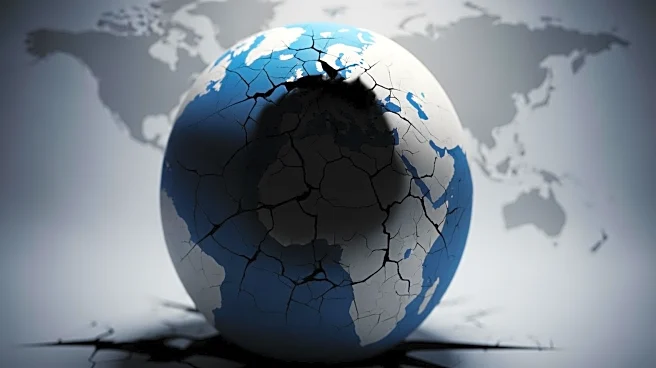What's Happening?
President Volodymyr Zelensky has expressed concerns that Russia could initiate a second front against another European country before the conflict in Ukraine concludes. In an interview with The Guardian,
Zelensky highlighted that Russian President Vladimir Putin is testing NATO's boundaries while continuing aggressive actions in eastern Ukraine. Zelensky linked recent drone incursions over European cities to Russia's stalled progress in Ukraine, suggesting that Putin might seek new territories due to the lack of success on the battlefield. He emphasized the need for European countries to remain vigilant and prepared for potential Russian aggression.
Why It's Important?
The potential for Russia to open a second front in Europe poses significant risks to regional stability and security. Such actions could strain NATO's resources and test the alliance's commitment to collective defense. European countries may face increased pressure to bolster their military readiness and support Ukraine more robustly. The situation underscores the broader geopolitical tensions between Russia and Western nations, with implications for international diplomacy and security policies. The possibility of expanded conflict could also impact global markets and energy supplies, given Europe's reliance on Russian energy exports.
What's Next?
European nations may need to reassess their defense strategies and consider increased military cooperation with NATO allies. Diplomatic efforts to de-escalate tensions and prevent further Russian aggression will likely intensify. Countries may also explore additional sanctions or economic measures to deter Russian actions. The international community will closely monitor developments in Ukraine and neighboring regions, with potential implications for future peace negotiations and security arrangements.
Beyond the Headlines
The situation raises ethical and legal questions about Russia's military tactics and the impact on civilian populations. The potential for expanded conflict could lead to humanitarian crises and displacement, challenging international aid organizations. Long-term, the conflict may influence global power dynamics and reshape alliances, as countries navigate the complexities of Russian aggression and Western responses.










